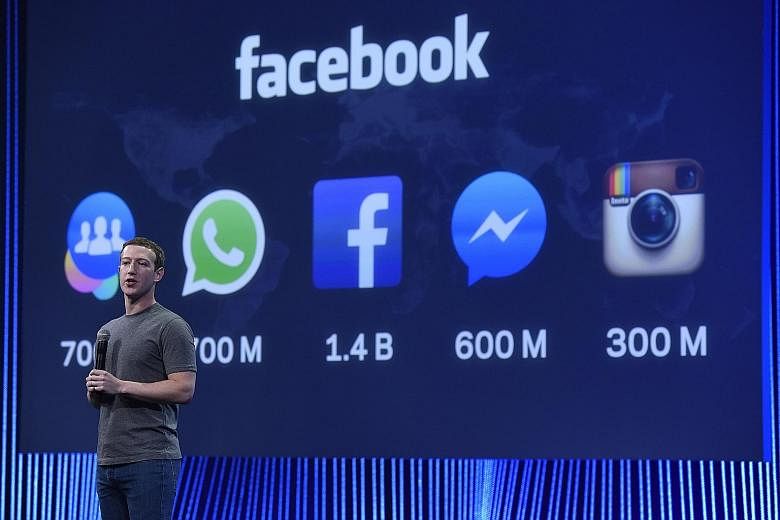Now that the Christmas lights are up, the financial industry's festive tradition of delivering market forecasts for the upcoming year has started again.
Most analysts had anticipated that the Straits Times Index (STI) would end 2015 anywhere between 3,200 points and 3,700 points. But it looks like their predictions will be well wide off the mark.
The STI is languishing around the 2,900 support level and there appears to be no sign of a year-end rally to bring on the traditional festive cheer and help the index vault past the 3,000-point level.
For investors, a more worthwhile exercise than predicting where the STI will end the year is probably to consider the themes likely to dominate trading interest.
Before doing so, there is one other trading trend to highlight - the big slowdown in activity around the region recently.
Bloomberg data shows average daily turnover for this month on the Singapore Exchange has slowed by 20.6 per cent to about S$922.11 million, compared with the first 10 months' daily average of S$1.16 billion.
Hong Kong has not fared any better. Its average daily turnover this month has sunk by 39.2 per cent to US$6.04 billion (S$8.58 billion) from the first 10 months' US$9.93 billion.
The usual excuse has been thrown up for the slowdown - fund managers closing their books early before going on their year-end holiday and investors keeping away because the US central bank may hike interest rates next month.
But if US interest rates go up, surely the US stock market should be the first to feel the chill. Instead, while other bourses have quietened down considerably, Wall Street has continued to party like there is no tomorrow.
For the past 11 months, average daily turnover has stayed at around US$28 billion on the New York Stock Exchange and about US$20 billion on the technology-heavy Nasdaq.
Turnover on Wall Street has stayed brisk, thanks to the widespread trading interest generated by a host of new-style economy stocks such as Apple, Amazon, Alphabet (the former Google) and Facebook luring investors not just from the United States but also the rest of the world.
This heralds a trend worth highlighting: One common feature shared by these new economy stocks is that they deploy fewer assets and human resources to expand their businesses once they achieve a certain size of operation.
Take Facebook, a US$300 billion social media network behemoth. Its books reflect that it has only US$5.4 billion of fixed assets such as properties and plant equipment. It had only about 10,000 staff, as of March. Yet, just using these resources, it has been able to lure more than one billion users to its website daily and make a profit out of it. But if anyone wants to spend US$5 billion in equipment to try to replicate the scale of Facebook's network, he will find it a big uphill struggle.
What is more, Facebook has been able to use its clout to buy up businesses, which further enhances its attractiveness.
One example is the instant messaging mobile phone software WhatsApp used by millions of users all over the world
Facebook's business model flies in the face of the traditional manner in which companies go about expanding their businesses by deploying more and more assets and staff - sometimes to the extent of swallowing up their business rivals via mergers and acquisitions.
In contrast, many old economy stocks are struggling to wring value out of their assets.
Global lenders such as Deutsche Bank employ many times more employees than Facebook, yet they trade at a fraction of their break-up values. Even our own blue-blooded lenders - DBS Group Holdings, OCBC Bank and United Overseas Bank, which are among the world's best capitalised banks - are trading only slightly above their respective book values.
Property counters are not faring any better either. Data from Shareinvestor.com shows City Developments trades at only 0.81 times price-to-book while its rival CapitaLand is priced at 0.75 times price-to-book. In the plantation space, Wilmar International trades at only 0.87 times price-to-book.
Yet, even though such blue chips have fallen to so-called attractive valuation levels, investors are not exactly snapping up their shares.
As a result, trading in these stocks has languished. Bourses, which find themselves crammed full of such old-style economy stocks, are seeing a drop in trading activity.
What does this suggest? We have long believed that Internet giants are a passing fad which will fade with time. But even in our own backyard, there are instances of them elbowing established blue chips aside to become household names in their own right.
One example is the Shenzhen-based Tencent Holdings which has become the largest component stock on Hong Kong's Hang Seng Index with a market cap of US$185 billion after building businesses that include the social network WeChat used by millions of Chinese.
There is every likelihood that more such companies will captivate investor interest as start-ups such as Uber, the ride-sharing firm, and Airbnb, the website for people to list and rent lodgings, go public.
This will have important implications on the type of strategies we should adopt as investors to safeguard our nest egg. Bourse operators risk lapsing into oblivion unless they can find ways to lure such companies to list on their exchanges.
Analysts are long used to promoting stocks priced below break-up values because they make attractive takeover targets. But the future may belong to fleet-footed firms which require far less capital and assets to scale up their businesses.
So, betting on where the STI - or any of the major stock indexes - will end next year may be chasing fool's gold. A better wager would be on which companies will shape our future. It will have to be a search that goes well beyond the confines of Singapore's shores.


